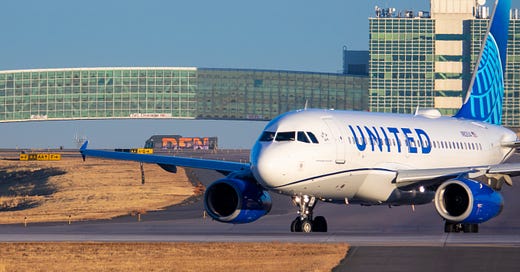Why United Wants To Wake Up With Denver
Super early morning hub flights are rare, but United is adding many from Denver. Also: What's new on United's catering improvements? And what's the biggest pain point for the airline's customers?
Dear readers,
An airline can run all the punchy Super Bowl advertisements it wants or spend big on saucy digital ads to try to win local market share. But ultimately, big-city travelers may choose an airline because it flies nonstop at the time they want to fly.
United, which is feuding with Southwest over which can call itself Denver's hometown airline,1 …




